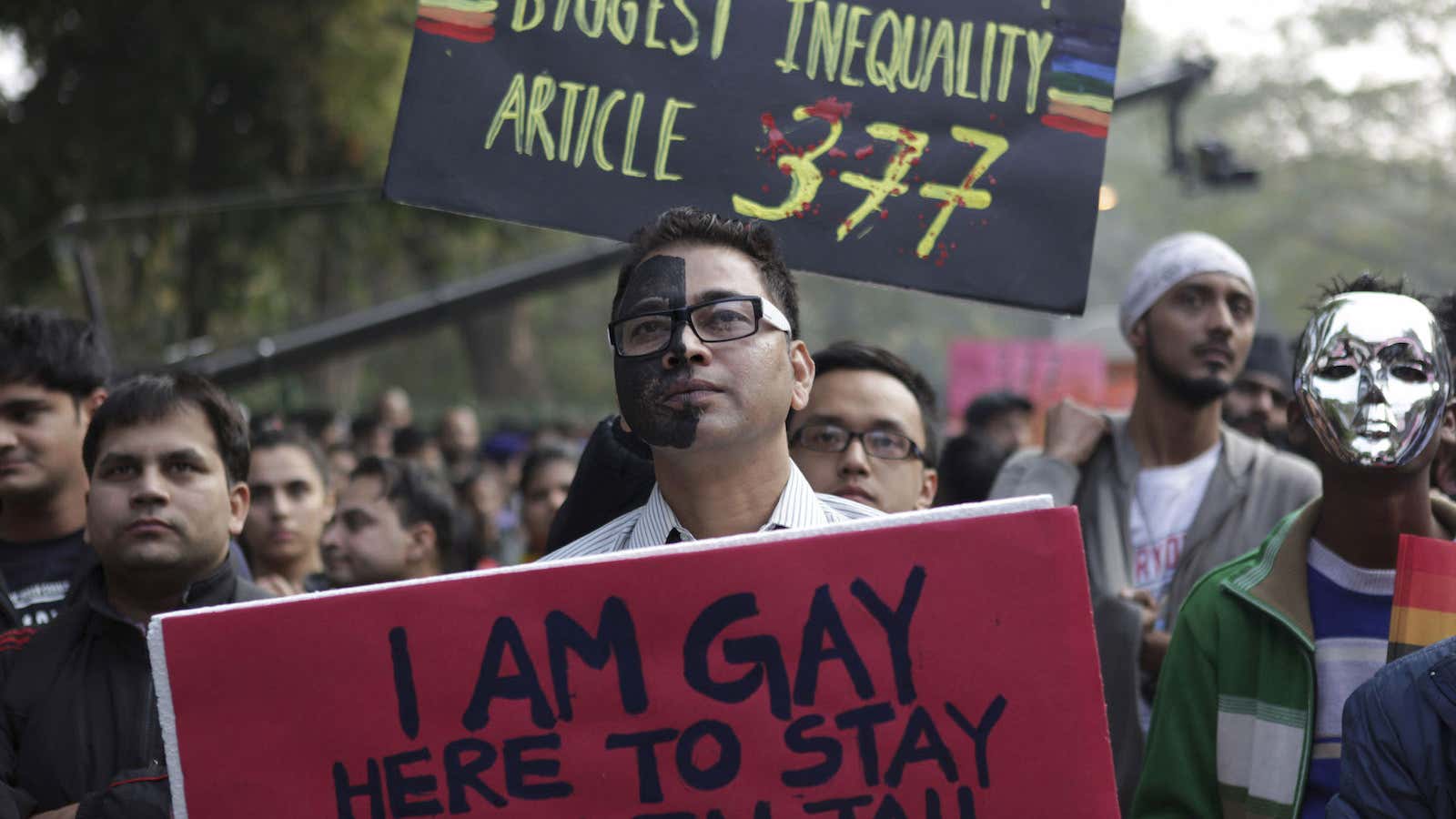To a stranger, Priya and Kamal Vedi looked like a perfect match. They were an attractive couple in their early 30s, and doctors at Delhi-based All India Institute of Medical Sciences, the most prestigious medical institute in the country.
But last Saturday, 31-year-old Priya, an anaesthesiologist, was found dead in a local hotel room after slitting her wrist. The police found a suicide note corresponding to her haunting April 18 Facebook note, where she wrote that her husband Kamal was secretly gay, had never consummated their marriage, and that she had been “just a wife tag for him.”
“I found a fake gmail account in his laptop in which he was doing chatting with his gay friends and gay porns, gay pics, connection with gay communities,” she wrote in the post, referring to her husband’s sexuality as “abnormal”.
“In spite of knowing this I decided to help him to b [sic] as a wife with him,” she said in the post that has been shared nearly 3,000 times by Monday morning. “But he tortured me a lot mentally.”
On Sunday the Delhi police arrested Kamal, a dermatologist, for abetting suicide. In India, if a woman dies under abnormal circumstances within seven years of marriage, and it is shown that she was subjected to cruelty by the spouse, her husband can be arrested under the Dowry Act.
Her death sheds light on the rift between India’s medical community and homosexuality, which is a criminal offence in India.
The Medical Council of India has refrained from taking a stand on how to approach the LGBT (lesiban, gay, bisexual and transgender) community—unlike the World Health Organisation, which in 2014 declassified homosexuality as an illness or disease—and therefore doesn’t offer a cure.
Without a firm line from the council, advocates say the LGBT community is more vulnerable to biased doctors who don’t want to treat them, secretive patients who don’t tell their whole story, and therapists selling “reparative therapies” meant to turn people straight.
“This is pseudo-science masquerading as science,” said Vyjayanti Mogli, a Hyderabad-based human and gender rights activist working with Hyderabad for Feminism and other groups.
Mogli, who identifies as a transgender woman, was forced by her parents and psychiatrist to undergo what she calls abusive and destructive months of reparative therapy when she was 20 years old. Years later she filed an affidavit with India’s Supreme Court, in part to demand that the LGBT community has access to health care. (The Indian Psychiatrists Association declared in 2014 that it doesn’t consider homosexuality an illness.)
But medical workers themselves also suffer from the country’s discrimination against gay, lesbian and transgender people, said Hemangi Mhaprolkar, a clinical psychologist with the Humsafar Trust, a non-profit organisation promoting LGBT rights.
She said it is common for gay doctors to do what Kamal did—get married to a woman and hide their identity. Part of it is to follow the social norms, Mhaprolkar said, but another part is to stay away from medical and legal battles that could arise if they start to get deeper into the issue of sexuality.
“Many people identify as gay and are in the medical fraternity,” she said. “Since there is no security of partnership in that society, they come back. But they won’t talk about that or about their sexuality openly.”
The consequences can be dire, such as in the case of Priya. As her husband goes to trial, and condolences continue to crop up under her last Facebook post, it remains to be seen what will and can change for the LGBT community in India.
“If someone in our society is like him please don’t marry to a girl to save yourself,” Priya wrote. “You people by doing so not playing only with someone emotions also with a girl and her family’s life [sic].”
